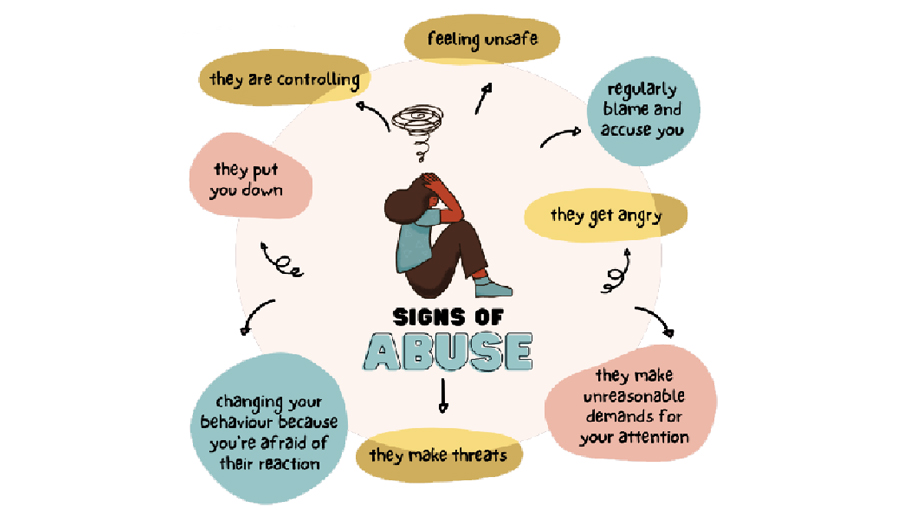Healthy and unhealthy relationships: How to spot the signs

Sometimes, we can get stuck in relationships or friendships with people who cause us to doubt ourselves or feel bad about who we are. It can be really difficult to distinguish which relationships are unhealthy because often, we love and care about the person that might be hurting us.
When we think of abuse, most of us imagine physical harm such as punching or kicking. But hurt comes in many forms – it can be physical, emotional, or financial, and the list goes on. Some are much harder to identify and detect than others, and the most common is not as simple as “x hit me”.
Starting with yourself:When it comes to abusive or unhealthy relationships, we often think “that won’t happen to me” because “I would never let it happen.” But in truth, everyone is vulnerable to abuse, whether that’s with family, a partner or friends.
Attracting healthy relationships and protecting yourself against unhealthy ones starts by building up self-esteem and self-worth. It’s this internal belief of “I deserve to feel loved and I deserve respect” that gives us a starting point of what we can expect from others and knowing when it’s time to walk away when it’s not working.
Activity: Great ways to build this up and practice, is to do daily affirmations. For example, “I am brave. I am beautiful. I love and accept myself just as I am. I am worthy of love.” Saying these every day to ourselves has been scientifically proven to increase self-confidence – why not give it a go!
Activity: Hot Air Balloon
Draw a balloon and make it your own.
• Write the names of people in the balloon that lift you up
• Write names in the basket of people who put you down
• Write words or sentences in the clouds surrounding the hot air balloon that describe the way you want to feel in relationships, about yourself and what values are important to you. Some ideas include spending quality time together, listening to each other or celebrating each other’s achievements.
• Reflect on how much time you give to these different people in your life, and whether those relationships reflect the words and phrases you wrote in the clouds.
Takeaway action: Remember you have a choice! Going forward, try to plan intentionally more time with the people who lift you up – see if you notice a difference in how you feel about yourself or the energy you have.
Signs that you might be in an unhealthy relationship
Empower yourself to make healthy relationship choices by learning how to spot what is and what isn’t working. With the right tools, you can identify signs that you might be in an unhealthy relationship and use this insight to create healthier dynamics and boost your wellbeing.
Activity: Track your feelings
A great way to notice whether you’re in a healthy or unhealthy relationship is to notice how you feel before, during and after spending time with that person.
Before: Do you look forward to seeing them, or dread spending time with them?
During: When you’re with them, do you feel like you’re walking on eggshells, anticipating the next thing going wrong, or are you relaxed and feel more able to be yourself?
After: Do they make you feel anxious, wired, or low energy? Do they make you feel confident, happy and fulfilled?
After reflecting and tracking your feelings, you may get a sense that something isn’t right. We’ve included some suggestions below about what might be going on in your relationship. Read through and see if any resonate with your experience.
Activity: Keep a Diary
Sometimes in unhealthy relationships, we might question our version of reality, especially if the other person is denying their actions, which can cause us to doubt ourselves. If you’re unsure how you feel about what’s going on, and if it’s safe to do so, you could keep a diary.
• Make a note of key events (including the date that it happened)
• How did the event make you feel?
• What happened?
This will help you track how often incidents happen and stay grounded in your version of events.
The article was taken from University of London student blog.




